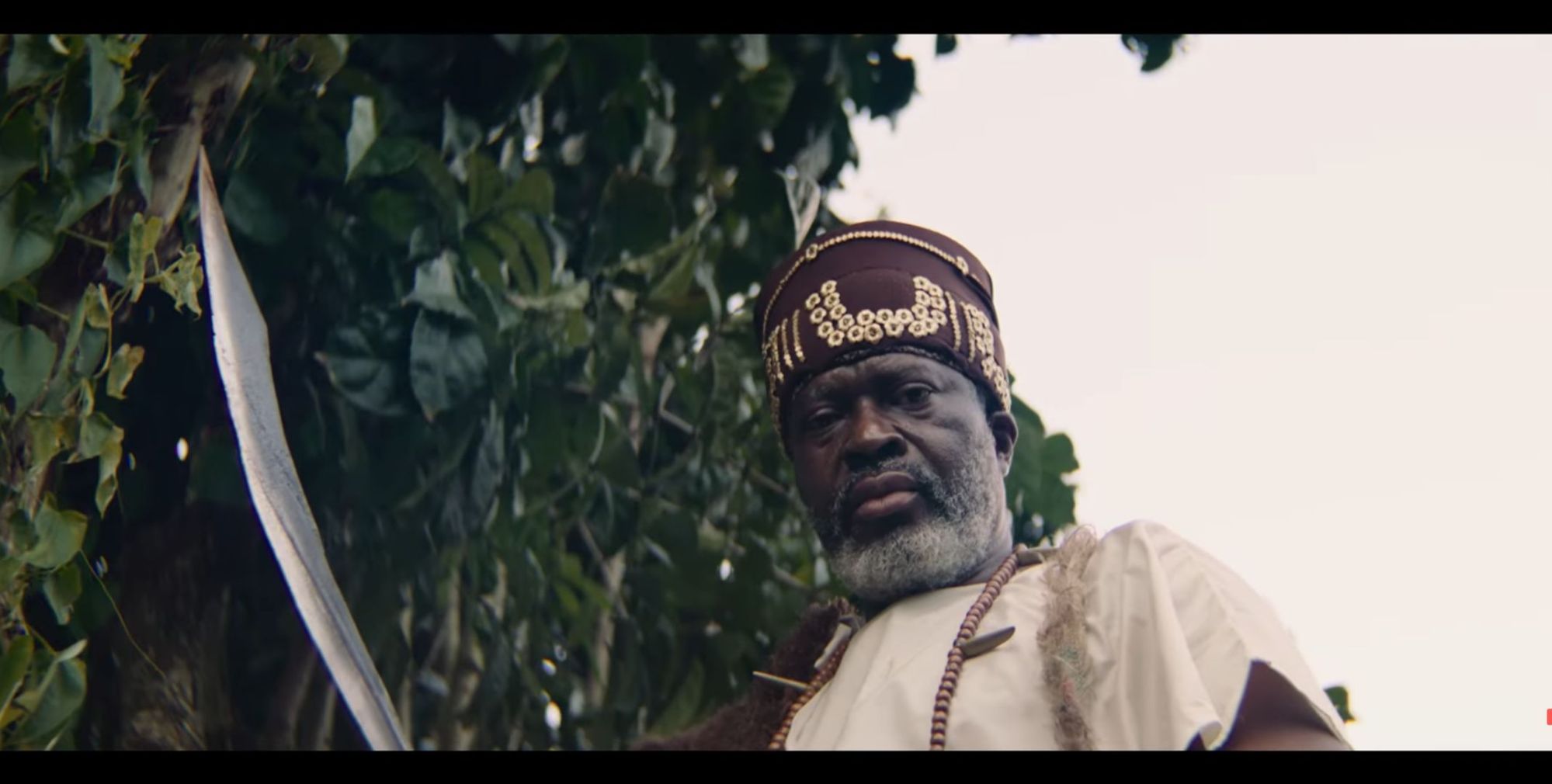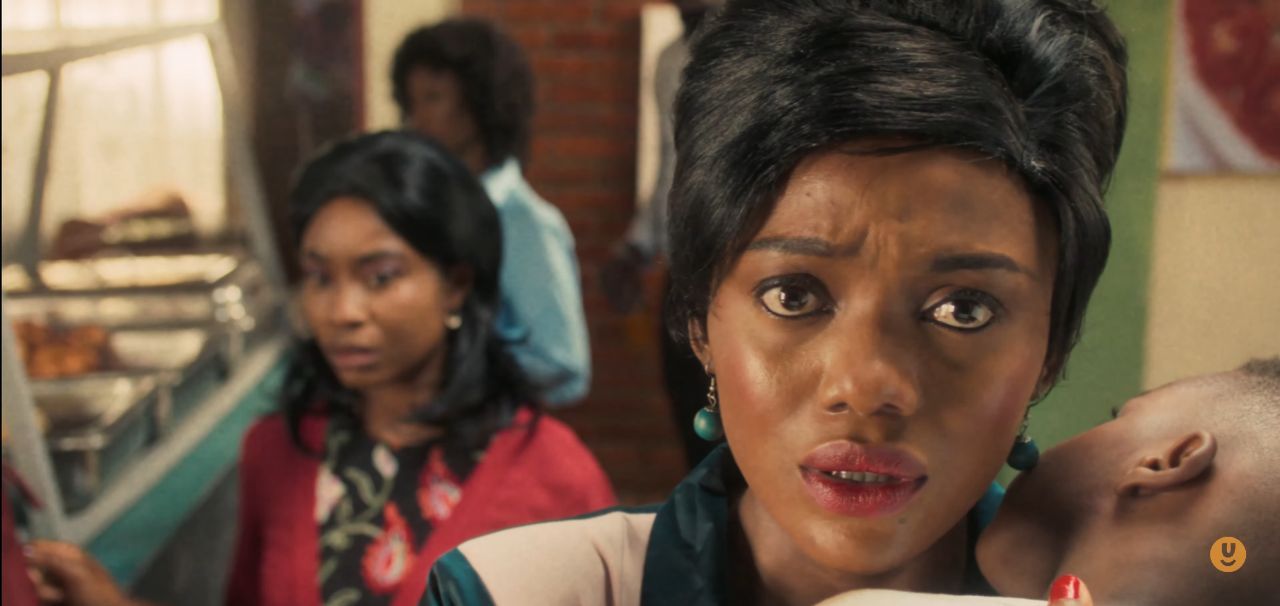AFRIFF: In Out of Breath, there is an almost fairytale-like quality to its story that sacrifices the complications and nuances of its time for a clean-cut, perfect saviour in the main character. This lays a weak foundation for the rest of the Obi Emelonye-directed feature which tells the story of Nna Obioha, a respected village elder, who stands in the way of the cruel tradition of burying slaves along with their dead masters.
The first thing of note in this film is the costume design. A period piece immerses us in its world at first glance by what the characters wear. In Out of Breath, it seems like a fusion of ancient Roman military clothing and Igbo attire most of the time. The rest of the film is classic Igbo epic attire: bare-chested men with loose wrappers, and women with two pieces around their chests and over their hips. There are glimpses of clothing—or rather accessories—as storytelling when Obioha tells Ndubuisi to take off the earring he is wearing that signifies his slave status. Aside from that, nothing else inspires curiosity in the costuming of this epic film.
This lack of curiosity is encouraged in the main characters who exist on the extremes of good and evil. Kanayo O. Kanayo (Afamefuna) is Nna Obioha who finds himself at the center of tradition, playing the role with the signature softness that has come with age. His character would have found more depth if his stance against this tradition came from a more grounded internal turmoil. Instead, we get terrible CGI dreams as though his only reason for taking a stand is supernatural benevolence.
On the opposite end, we get Chidi Mokeme (Shanty Town) as Izu. He excels in this role as he finds himself in the comfortable villainous position he’s gained recognition for recently. He is evil in a way that makes you ask questions. While the film tries to establish his wickedness as some response to the way his father treats him, it ends up mostly confusing.
Out of Breath tries to create subplots that cause conflict between Nna Obioha and Izu through their slaves. Jidekene Achufusi (A Tribe Called Judah) is Odita, Izu`s slave, who is in love and accepting of his death while Nonso Ekemezie is Ndubisi, a slave turned son of Nna Obioha who is at the center of destroying a cruel tradition. The clash of their core beliefs is presented in whose slave lives or dies. These characters, played adequately by their actors, are meant to enrich the plot in some way but mostly just mark time (till they’re needed) to further the story—Ndubuisi serves as a decent callback at the end of the film though.
The confusion of the film’s story, barely held together, falls apart once we are transported to the future in a time jump. There is no sense of time and era which isn’t helped, once again, by the costume design. An emotional reunion is being built but you spend most of the time trying to add things up which removes you from the bittersweet moment being created.
Out of Breath is a story that can serve as some sort of window into the historical workings of a society, one that can help us piece together the past so we can understand the present and predict the future, but instead it’s flattened into clean cut lines and questionable CGI. Inspired by a true story, you’re left still lacking any real knowledge of what that true story could have been.
Out of Breath closed the 2024 Africa International Film Festival.
Share your thoughts in the comments section or on our social media accounts.
Keep track of upcoming films and TV shows on your Google calendar.
Side Musings
- Chidi Mokeme’s eye makeup, what was his smoky eye routine? He needs to do a get ready with me video.
- The representation of the forest as an albino person gave me pause but I didn’t want to be “that one friend that’s too woke.”
- I can write an article about the CGI at AFRIFF and this film would take a whole paragraph because it got really ridiculous at some point.




